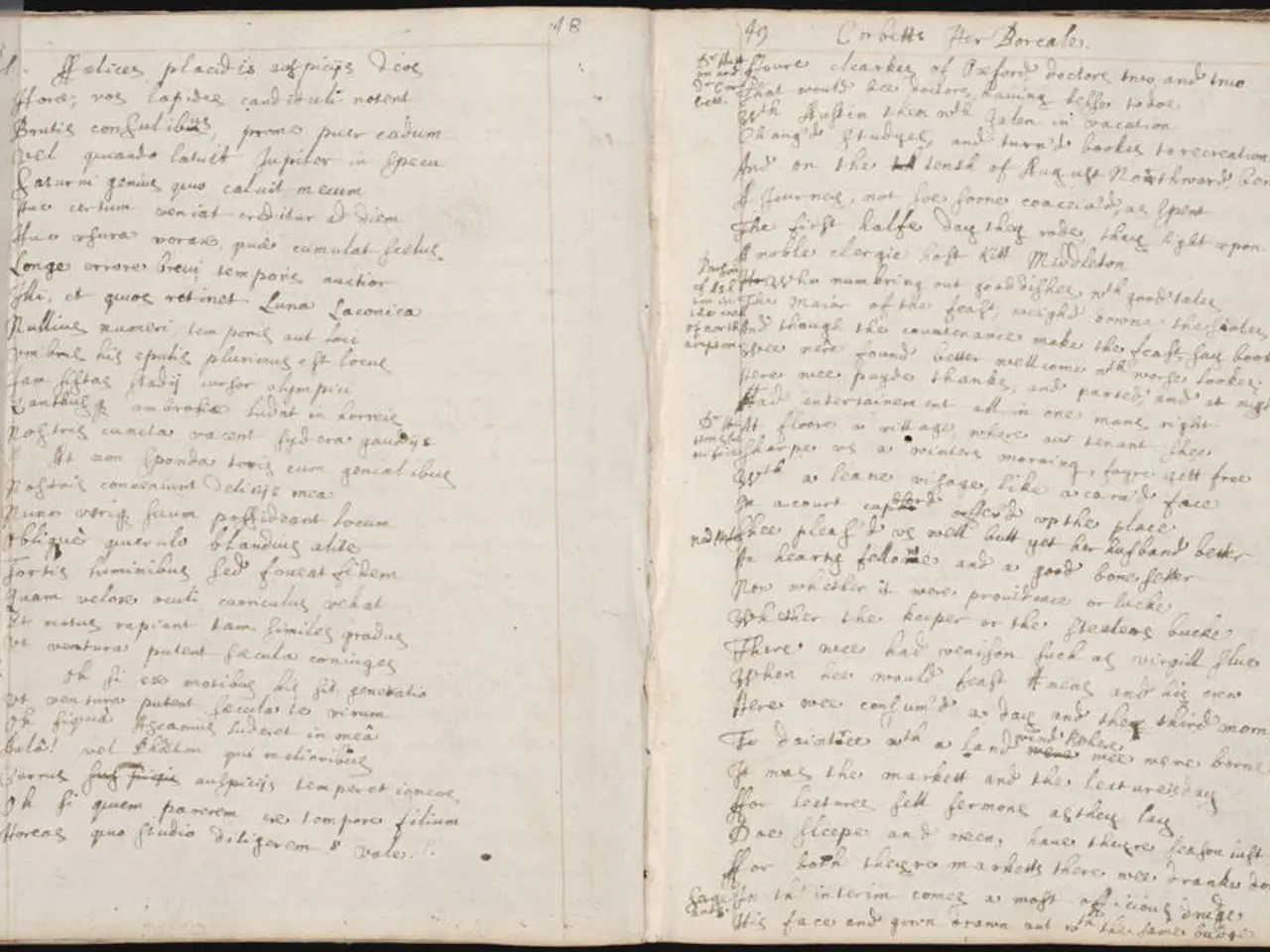Unreliable Storytellers who Challenge Audience's Perceptions of Narration Perspectives
In the world of literature, unreliable narrators have long been a captivating device used by authors to create tension and deepen thematic exploration. These narrators, whose perspectives may be distorted by madness, bias, trauma, or social invisibility, challenge readers to question the truth and delve into the human psyche.
One such novel is Daphne du Maurier's "Rebecca," where the second Mrs de Winter serves as an unreliable narrator, her insecurities and misinterpretations of her surroundings adding layers of mystery to the story.
In Gayl Jones' "Palmares," the narrator Almeyda, a former slave, weaves a mesmerizing tale with her vivid storytelling. The retrospective narration adds another layer of unreliability, as readers must discern the truth from her detailed and specific accounts. Almeyda's voice is indelible, with visions, dreamlike characters, and medicine men contributing to the enchanting narrative.
Ralph Ellison's "Invisible Man" introduces an unnamed Black protagonist whose narration reflects his social invisibility and internal conflict as he reconciles his individuality within oppressive societal structures. The first-person memoir style distances the narrator from the protagonist, adding complexity to the narrative. The use of first-person narration brings readers into the internal landscapes of the character's mind, making for a compelling exploration of his psychological journey.
Shirley Jackson's "We Have Always Lived in the Castle" presents Merricat, a psychologically disturbed protagonist with a dangerous mindset. Her unreliable narration, marked by omissions and a skewed perspective, adds to the novel's intrigue. Merricat is intensely protective over her sister Constance and desires to isolate them from outside influence.
Clarice Lispector's "The Hour of the Star" focuses on Macabea, a woman living on the fringes of Rio di Janeiro, and her disintegration of the self. The narrator, Rodrigo S.M., assesses Macabea's life, sometimes reflecting and questioning his own motivations.
Irenosen Okojie is an author known for her works "Butterfly Fish," "Speak Gigantular," "Nudibranch," and "Curandera." In her novel "The Brotherhood," the protagonist, before joining the organisation, is innocent and often misinterprets situations, forcing readers to make their own conclusions. As he begins to reconcile with the realization that his societal role as a Black man limits his sense of individuality, the narrator's voice changes.
These narrators' psychological complexities—ranging from madness, bias, trauma, fractured identity, to social invisibility—enhance the narrative tension by making readers question the truth and deepening thematic exploration of the human psyche.
References:
- The Great Gatsby by F. Scott Fitzgerald
- Local Woman Missing by Shelby Tebow
- Invisible Man by Ralph Ellison
- The Cheerleaders by Kara Thomas
- We Have Always Lived in the Castle by Shirley Jackson
- The Tell-Tale Heart by Edgar Allan Poe
In the realm of literature, narratives enriched by books like 'The Great Gatsby' by F. Scott Fitzgerald and 'Local Woman Missing' by Shelby Tebow thrive on the use of unreliable narrators, mirroring everyday lifestyles and incorporating elements of entertainment to engage readers. Readers are encouraged to scrutinize and appreciate the stories' depth, as narrators' psychological complexities—ranging from madness, bias, trauma, fractured identity, to social invisibility—heighten the narrative tension, offering a rich examination of the human psyche.







